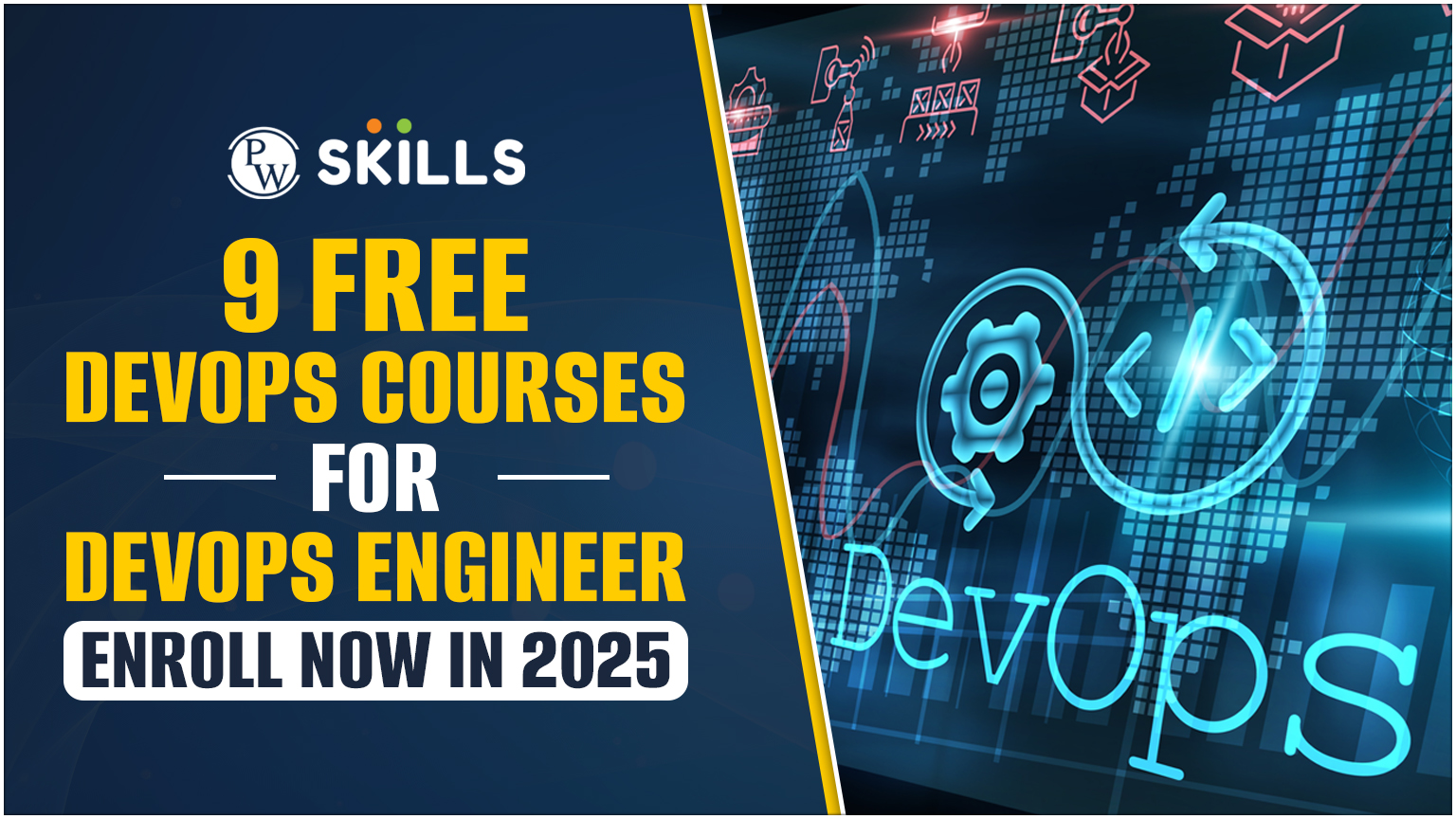DevOps is a fast-growing field that combines software development and IT operations to make processes faster and more efficient. If you want to build a career in DevOps, learning the right skills is very important. The good news is that you don’t have to spend money to learn DevOps. Many top platforms offer free courses that cover important DevOps tools and concepts.
In this article, we have listed 9 free DevOps courses that will help you get started. These courses are available online, and you can enroll in them anytime. Whether you are a beginner or already have some experience, these courses will improve your knowledge. You will also find some of the best websites to learn DevOps for free and even options for DevOps course free download. Start learning today and boost your DevOps career without any cost.
What is DevOps?
DevOps combines Development (Dev) and Operations (Ops) to help teams work together and deliver software faster. It focuses on automation, teamwork, and continuous improvement. In traditional software development, developers write code, and a separate team handles deployment, causing delays.
DevOps solves this by bringing both teams together and using devOps tools like Jenkins, Docker, and AWS to automate tasks. This helps companies release updates quickly, fix issues faster, and improve software quality. DevOps also boosts security, saves costs, and ensures reliable software. Many businesses use DevOps today, making it a valuable skill for IT professionals.
Why Enroll in Free DevOps Courses?
DevOps can help you develop valuable skills and increase your job prospects. Here’s how enrolling in a DevOps course can benefit you:
- Learn Practical Skills: Get hands-on experience with automation, cloud computing, and CI/CD pipelines.
- Improve Teamwork: DevOps focuses on better collaboration between development and operations teams.
- Earn Certifications: Getting certified can increase your job opportunities and strengthen your resume.
- Get High-Paying Jobs: DevOps professionals are in high demand, and companies offer great salaries.
Benefits of Learning DevOps in 2025
Candidates who choose to learn DevOps in 2025 can enjoy many advantages. Here’s how enrolling in a DevOps course can benefit your career:
- High Demand: Companies across various industries are increasingly relying on DevOps practices for efficient software delivery. Skilled DevOps engineers are in high demand, making it easier to find job opportunities.
- Better Salary: DevOps professionals often earn higher salaries compared to other IT roles due to their specialized skills in automation, cloud computing, and continuous integration.
- Fast Career Growth: With the right DevOps course, you can quickly move into senior positions as companies value experienced professionals who can drive efficiency.
- Work Flexibility: Many DevOps jobs offer remote work and freelancing opportunities, giving you the freedom to work from anywhere.
How DevOps Courses Help in Career Growth?
Enrolling in free DevOps courses can accelerate your career by providing key skills in tools like Docker, Kubernetes, Jenkins, and AWS. Here’s how it helps:
- Work as a DevOps Engineer, Cloud Engineer, or Site Reliability Engineer (SRE).
- Gain valuable certifications from Microsoft, Google, and AWS to boost your resume.
- Open doors to top tech jobs globally, as DevOps is crucial in many leading companies.
9 Free DevOps Courses For DevOps Engineers
Here are 9 free DevOps courses to help you learn important skills like automation, CI/CD, cloud computing, and DevOps tools. These courses are great for beginners and professionals looking to grow in the DevOps field.
1. Advanced Certification in DevOps and Cloud Computing [PW Skills]
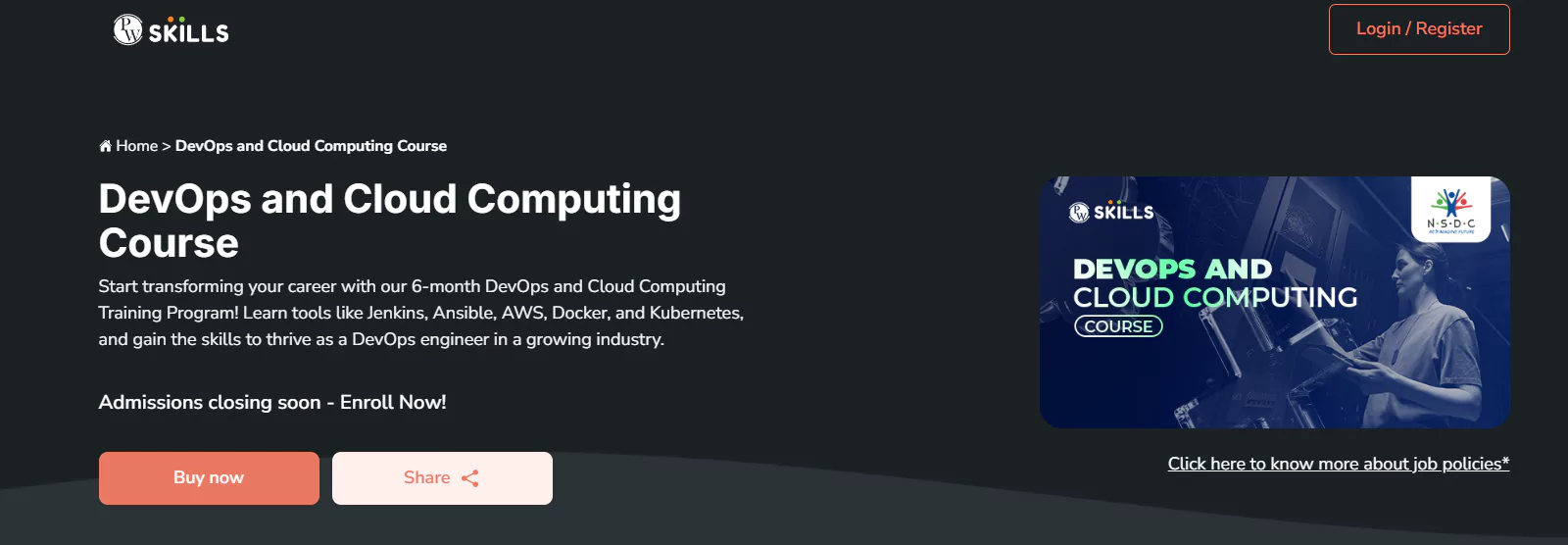
The Advanced Certification in DevOps and Cloud Computing from PW Skills equips you with practical skills in DevOps and cloud technologies. It covers key concepts like automation, cloud services, and CI/CD. By the end, you’ll be ready to apply DevOps principles in real-world projects, making you a valuable tech professional.
What You’ll Learn:
- DevOps Tools: You’ll learn how to work with popular tools like Jenkins, Docker, Kubernetes, and AWS to automate and streamline processes.
- Cloud Computing: You’ll gain knowledge of cloud platforms like AWS, enabling you to deploy and manage applications efficiently.
- CI/CD Pipelines: You’ll master how to create automated pipelines for building, testing, and deploying applications.
- Infrastructure as Code: Learn how to manage infrastructure using code, which improves efficiency and scalability…
2. LinuxFoundationX: Introduction to Jenkins [Linux Foundation]

The LinuxFoundationX: Introduction to Jenkins course is a great starting point for learning Jenkins, a key DevOps tool for automating software development. It covers the basics of Jenkins, helping you build a strong foundation in CI/CD automation.
What You’ll Learn:
- Jenkins Basics: You’ll learn how to install and configure Jenkins, set up projects, and automate software tasks.
- Building CI/CD Pipelines: You’ll gain hands-on experience in creating CI/CD pipelines using Jenkins for automated testing and deployment.
- Jenkins Plugins: You’ll explore various Jenkins plugins to extend the functionality and customize your pipeline as needed.
- Integration with Other Tools: You’ll learn how to integrate Jenkins with other DevOps tools like Git, Docker, and Kubernetes for improved automation.
3. DevOps Culture and Mindset [Coursera]
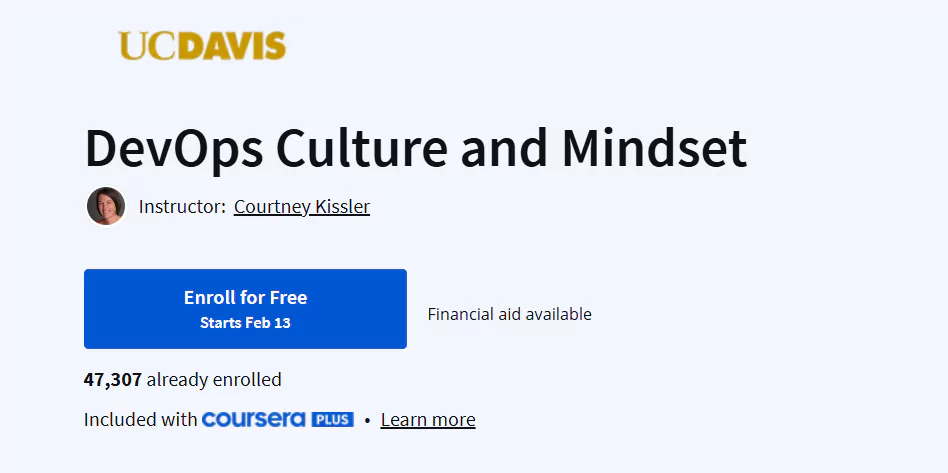
The DevOps Culture and Mindset course explores key DevOps principles like collaboration, communication, and continuous improvement. It highlights breaking silos, shared responsibility, and automation for faster, efficient software delivery. Ideal for beginners and professionals, it helps you adopt the DevOps mindset for high-quality, reliable software development.
What You’ll Learn:
- DevOps Principles: You’ll learn the core values of DevOps, including collaboration, automation, and feedback, and how to apply them in the workplace.
- Cultural Shift: You’ll understand how to encourage a DevOps culture within teams, focusing on continuous learning and improvement.
- Improved Communication: You’ll learn strategies for fostering better communication between development and operations teams, leading to more efficient workflows.
- Agile Practices: You’ll explore how DevOps and Agile practices go hand-in-hand to improve the overall development lifecycle.
4. Getting Started with DevOps on AWS [AWS Learning]

The Getting Started with DevOps on AWS course teaches you how to leverage Amazon Web Services (AWS) to build and deploy applications efficiently using DevOps practices. AWS is a popular cloud platform, and knowing how to use it in DevOps can greatly improve your ability to automate and manage infrastructure. This course covers the basics of setting up DevOps workflows using AWS tools. Get many more learning materials and resources related to free devOps courses on AWS.
What You’ll Learn:
- AWS Basics: You’ll learn how to navigate AWS and use it for deploying applications and managing cloud infrastructure.
- Automation on AWS: You’ll understand how to automate tasks like provisioning servers, scaling resources, and deploying applications using AWS services.
- CI/CD on AWS: You’ll learn how to set up Continuous Integration and Continuous Deployment pipelines on AWS using services like AWS CodePipeline.
- Infrastructure Management: You’ll gain experience in managing infrastructure through Infrastructure as Code (IaC) using AWS tools like CloudFormation.
5. Preparing for Google Cloud Certification [Google Cloud]

The Preparing for Google Cloud Certification course is designed to help you prepare for Google Cloud’s professional certifications, especially for DevOps-related roles. It focuses on using Google Cloud Platform (GCP) for deploying, managing, and scaling applications efficiently with DevOps practices. Google Cloud provides many free devOps courses and training programs for beginners and intermediate professionals.
What You’ll Learn:
- Google Cloud Fundamentals: You’ll get an overview of GCP services and how to use them for application deployment and management.
- Setting up CI/CD on GCP: You will learn how to create and automate CI/CD pipelines using Google Cloud tools.
- Infrastructure as Code: You’ll learn how to manage and provision cloud resources using Google Cloud’s infrastructure tools.
- Preparing for Certification: This course helps you get ready for Google Cloud’s certification exams, enhancing your credentials for future job opportunities.
6. Microsoft Certified: DevOps Engineer Expert [Microsoft]

The DevOps Engineer Expert course is designed for professionals who want to gain expertise in using Microsoft tools for DevOps. These free devOps courses at Microsoft helps you master the skills required to design and implement DevOps practices using Azure DevOps and GitHub.
What You’ll Learn:
- Azure DevOps: You’ll gain hands-on experience with Azure DevOps tools to build and manage CI/CD pipelines.
- Source Control Management: Learn how to use Git and GitHub for source code management in DevOps workflows.
- Automated Testing and Deployment: You’ll master automated testing, continuous integration, and deployment on Microsoft platforms.
- Cloud Integration with DevOps: You will learn how to integrate cloud-based resources with DevOps processes using Azure.
7. Developing Cloud-Native Applications with Microservices Architectures
[Red Hat]
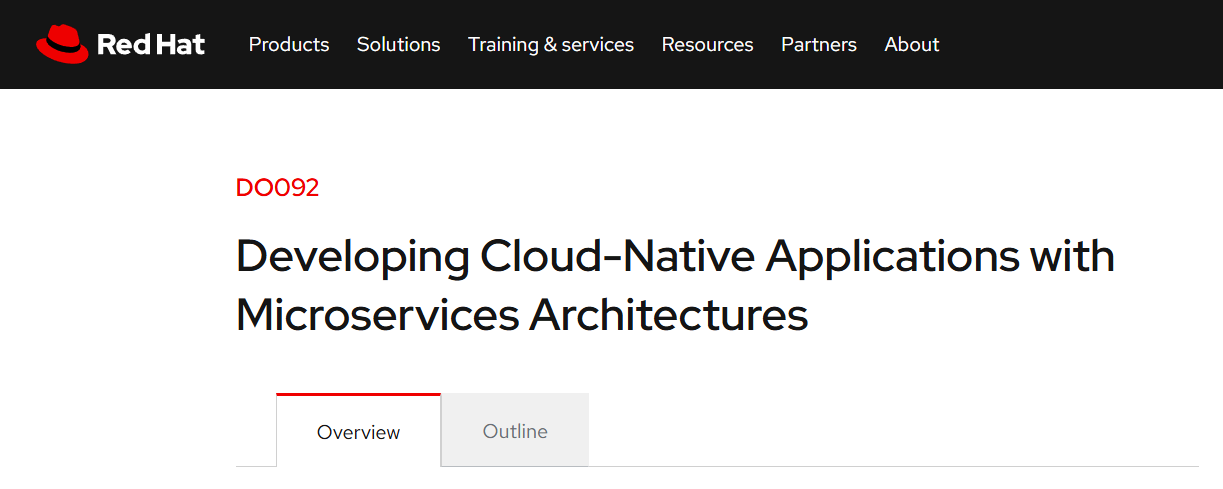
The Developing Cloud-Native Applications with Microservices Architectures course teaches you how to design and build scalable, cloud-based applications using microservices. These applications are designed to run efficiently in the cloud and support rapid scaling and deployment.
What You’ll Learn:
- Microservices Architecture: You’ll learn how to design applications using microservices, which allow for independent scaling and easy updates.
- Cloud-Native Development: Understand how to build applications optimized for the cloud, leveraging services like AWS or Google Cloud.
- Containerization: You’ll gain hands-on experience in containerizing microservices using tools like Docker and Kubernetes.
- CI/CD with Microservices: Learn how to implement CI/CD pipelines for microservices-based applications for continuous delivery.
8. DevOps Foundation Certification Training
[DevOps Institute]
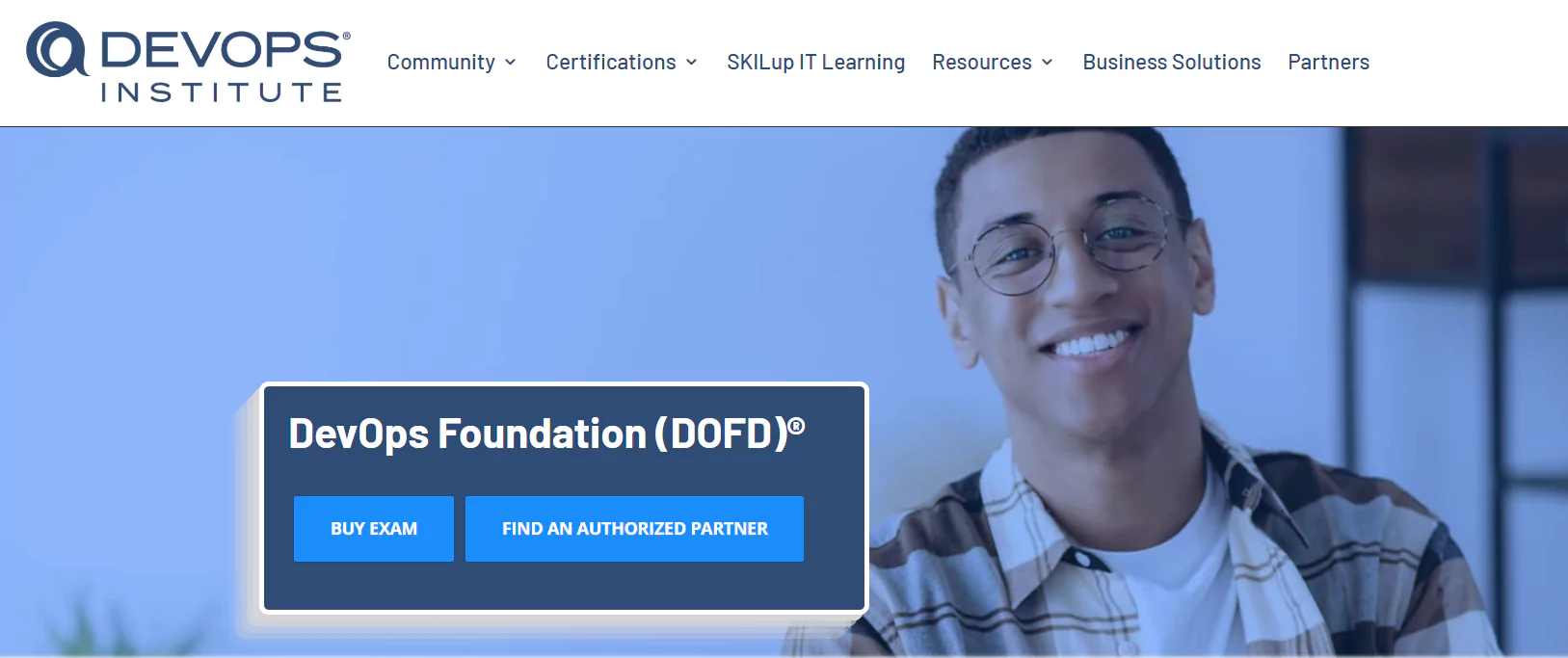
The DevOps Foundation Certification Training course provides a broad understanding of DevOps principles and practices. This training is a great way to start your journey into DevOps and earn a foundational certification that proves your knowledge of the field.
What You’ll Learn:
- DevOps Concepts: Learn the fundamental concepts of DevOps, including collaboration, automation, and continuous delivery.
- CI/CD Practices: Gain a solid understanding of how Continuous Integration and Continuous Delivery work in a DevOps environment.
- DevOps Tools: You will be introduced to the basic DevOps tools used for automation, collaboration, and testing.
- DevOps Culture: Understand the importance of creating a collaborative and open environment between development and operations teams.
9. Docker Essentials [IBM]
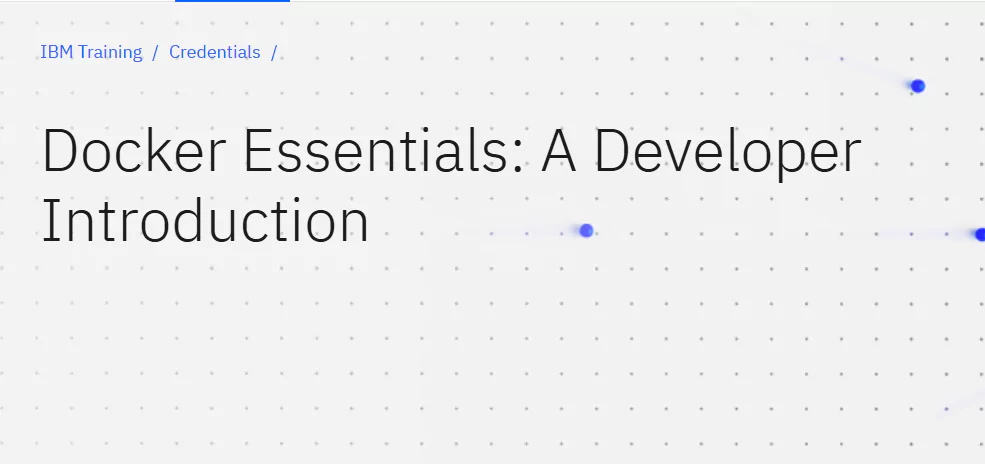
The Docker Essentials course focuses on Docker, a powerful tool for containerization in DevOps. Learn about the docker in these free devOps courses and strengthen your portfolio. Learning how to use Docker will allow you to package and deploy applications quickly and consistently across different environments.
What You’ll Learn:
- Docker Basics: Learn how to use Docker to containerize applications and simplify deployment.
- Creating Docker Containers: You’ll gain hands-on experience in creating and managing Docker containers for your applications.
- Docker Compose: Understand how to use Docker Compose for managing multi-container applications.
- Integrating Docker with CI/CD: Learn how to integrate Docker containers into your CI/CD pipeline for efficient automated deployments.
Career Opportunities After Free DevOps Courses
After completing free DevOps courses from a recognised platform, many career opportunities open up for you. DevOps is in high demand across industries, and organizations are actively seeking professionals skilled in automation, cloud computing, and continuous integration. Here are some career roles you can pursue:
- DevOps Engineer: A primary role in managing development and operations teams, focusing on automating processes and ensuring smooth delivery of software.
- Cloud Engineer: Working with cloud platforms like AWS, Google Cloud, or Azure to manage cloud infrastructure and services.
- Site Reliability Engineer (SRE): Ensuring the reliability, performance, and availability of systems and applications through automation and monitoring.
- Automation Engineer: Specializing in automating repetitive tasks to streamline processes, reduce errors, and improve efficiency in software delivery.
- Release Manager: Overseeing the release process, ensuring that code is delivered efficiently and on time to production.
Free DevOps Courses FAQs
Q1. What is DevOps?
Ans: DevOps is a combination of Development (Dev) and Operations (Ops) that helps teams develop, test, and deploy software faster using automation and collaboration.
Q2. Why should I learn DevOps?
Ans: Learning DevOps improves job opportunities, increases salary potential, and enhances skills in automation, cloud computing, and CI/CD pipelines.
Q3. Are these DevOps courses really free?
Ans: Yes, all the listed courses are free to enroll. Some may offer paid certificates, but learning materials are accessible for free.
Q4. Can beginners take these DevOps courses?
Ans: Yes, most of these courses are beginner-friendly and cover basic DevOps concepts and tools.
Q5. What are the best tools to learn in DevOps?
Ans: Important DevOps tools include Jenkins, Docker, Kubernetes, AWS, Git, and Terraform.

